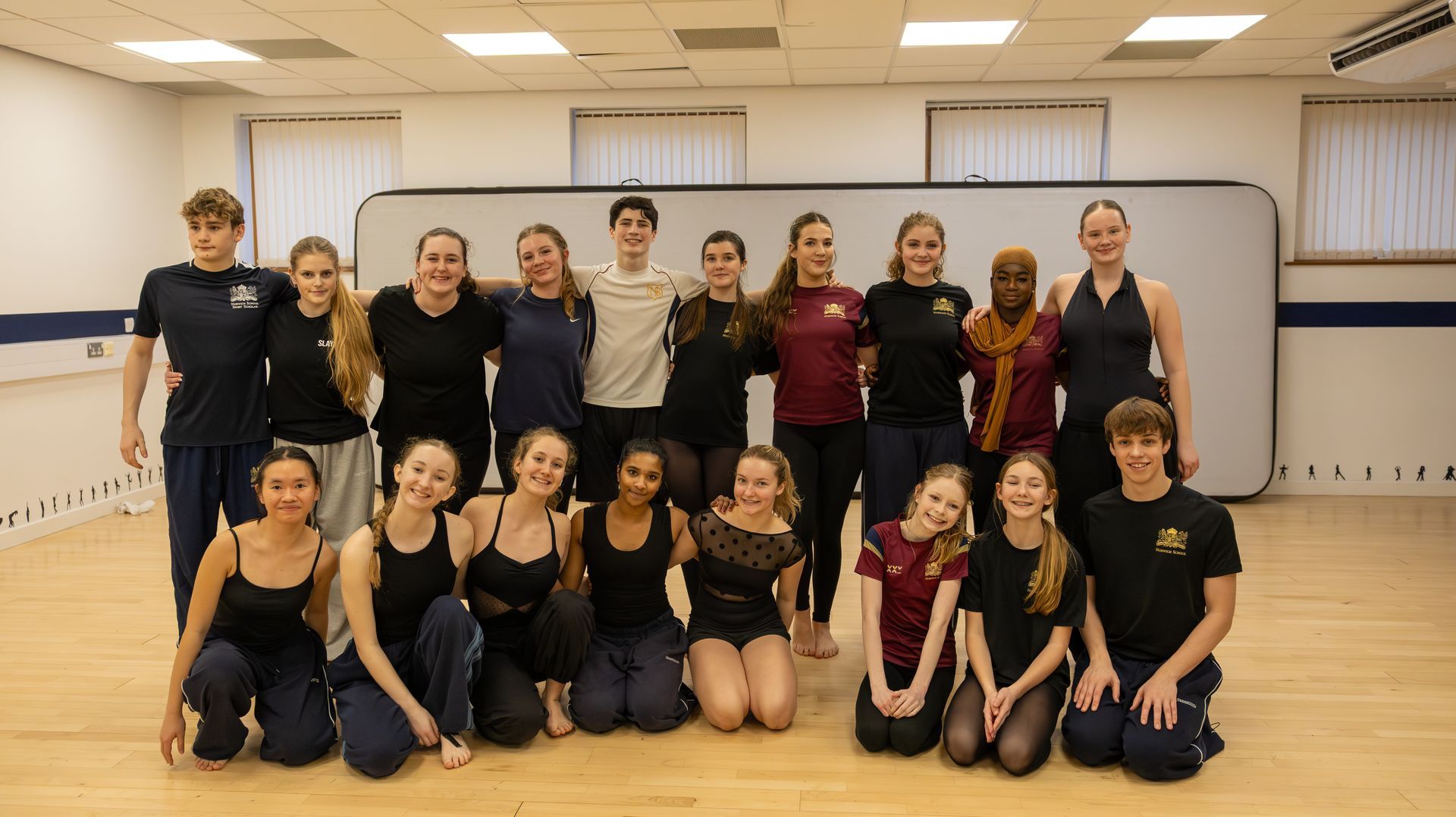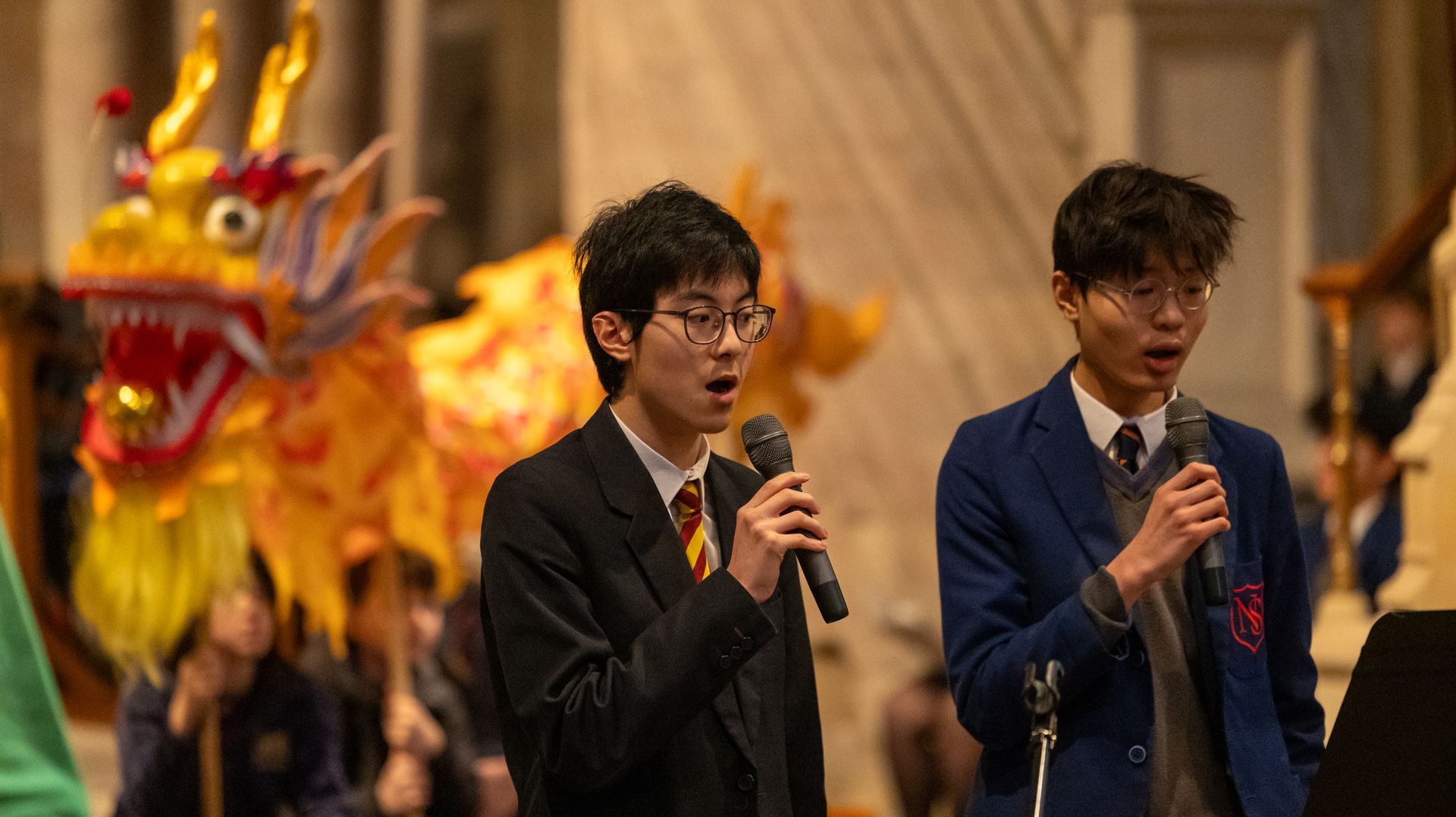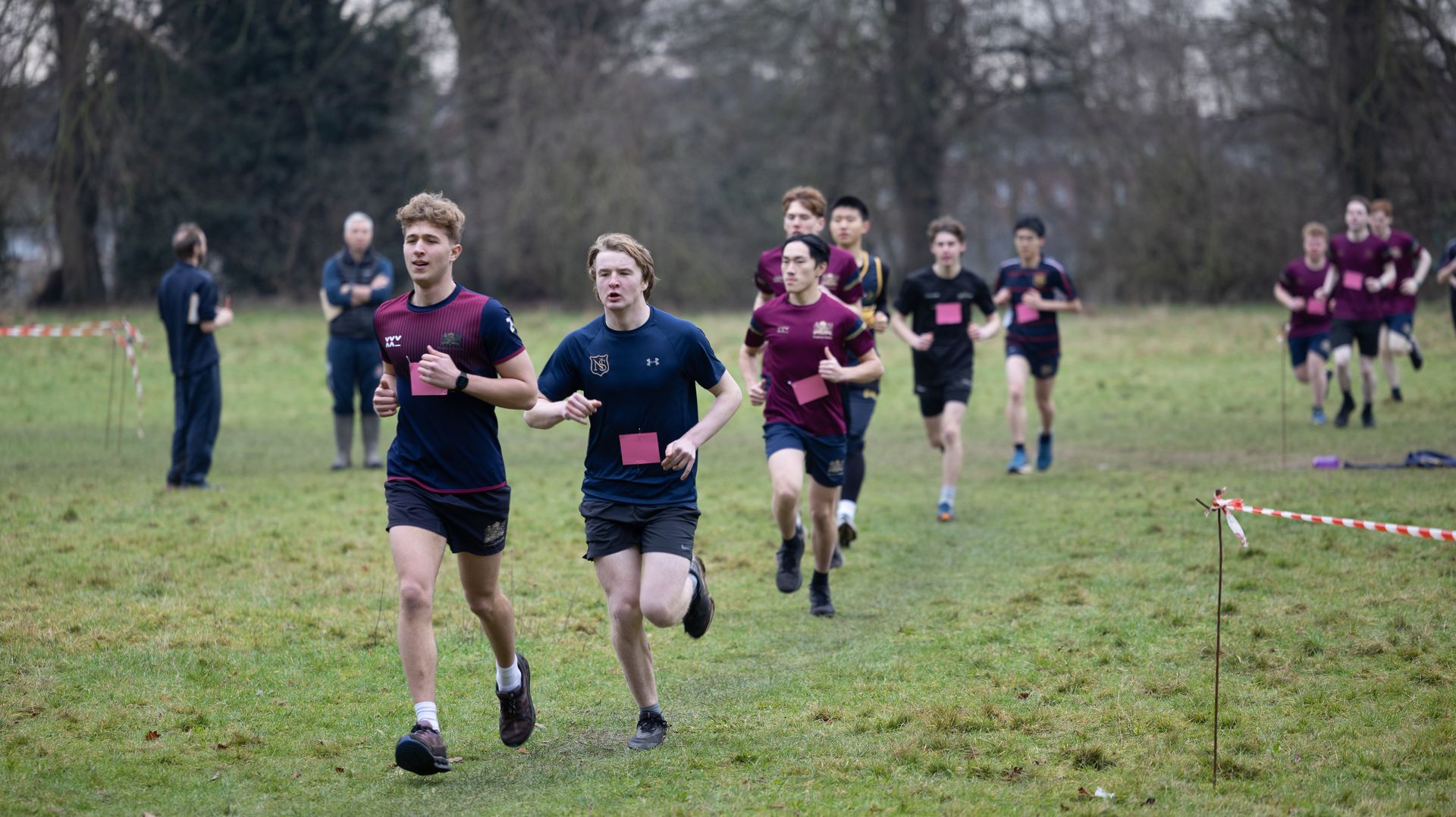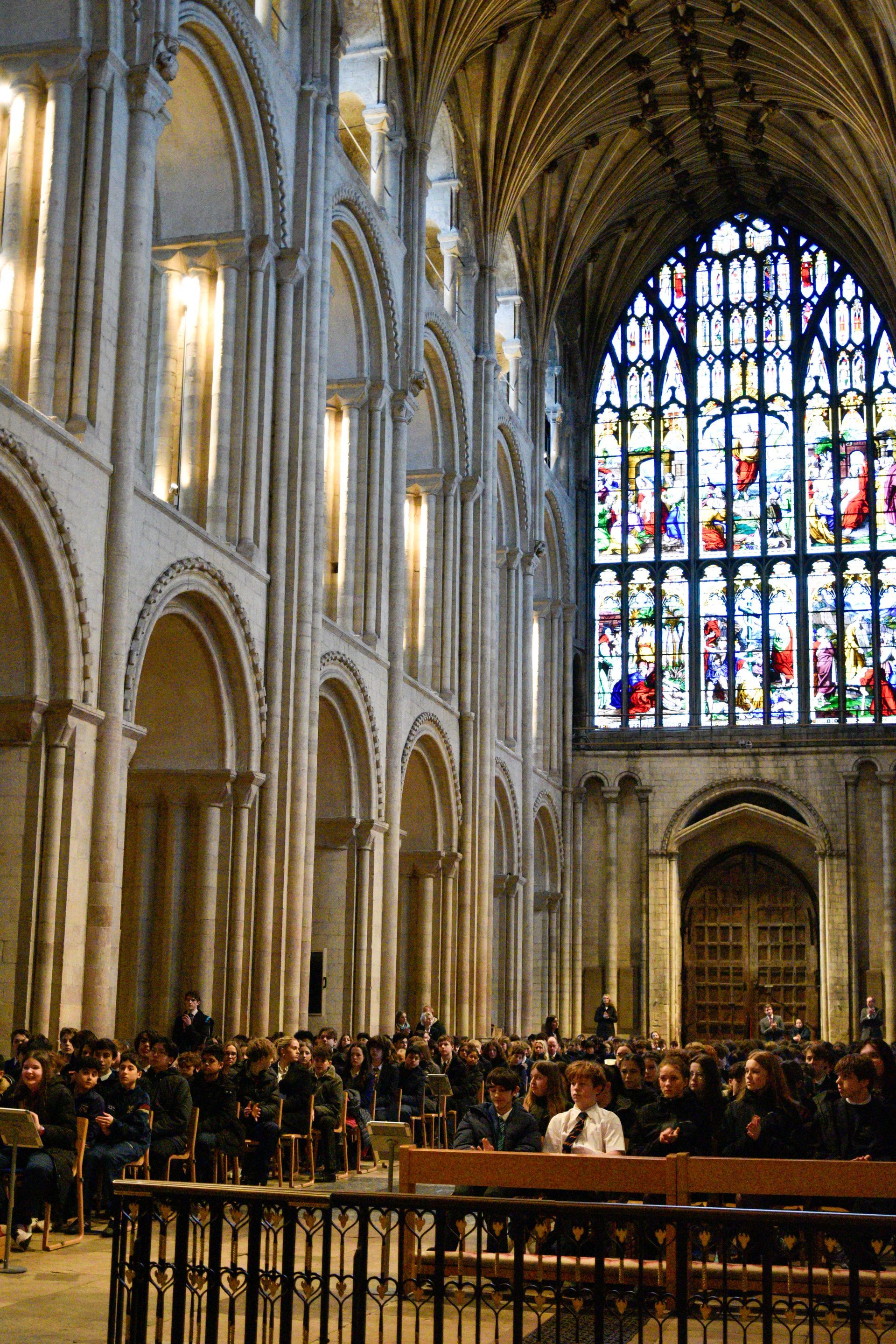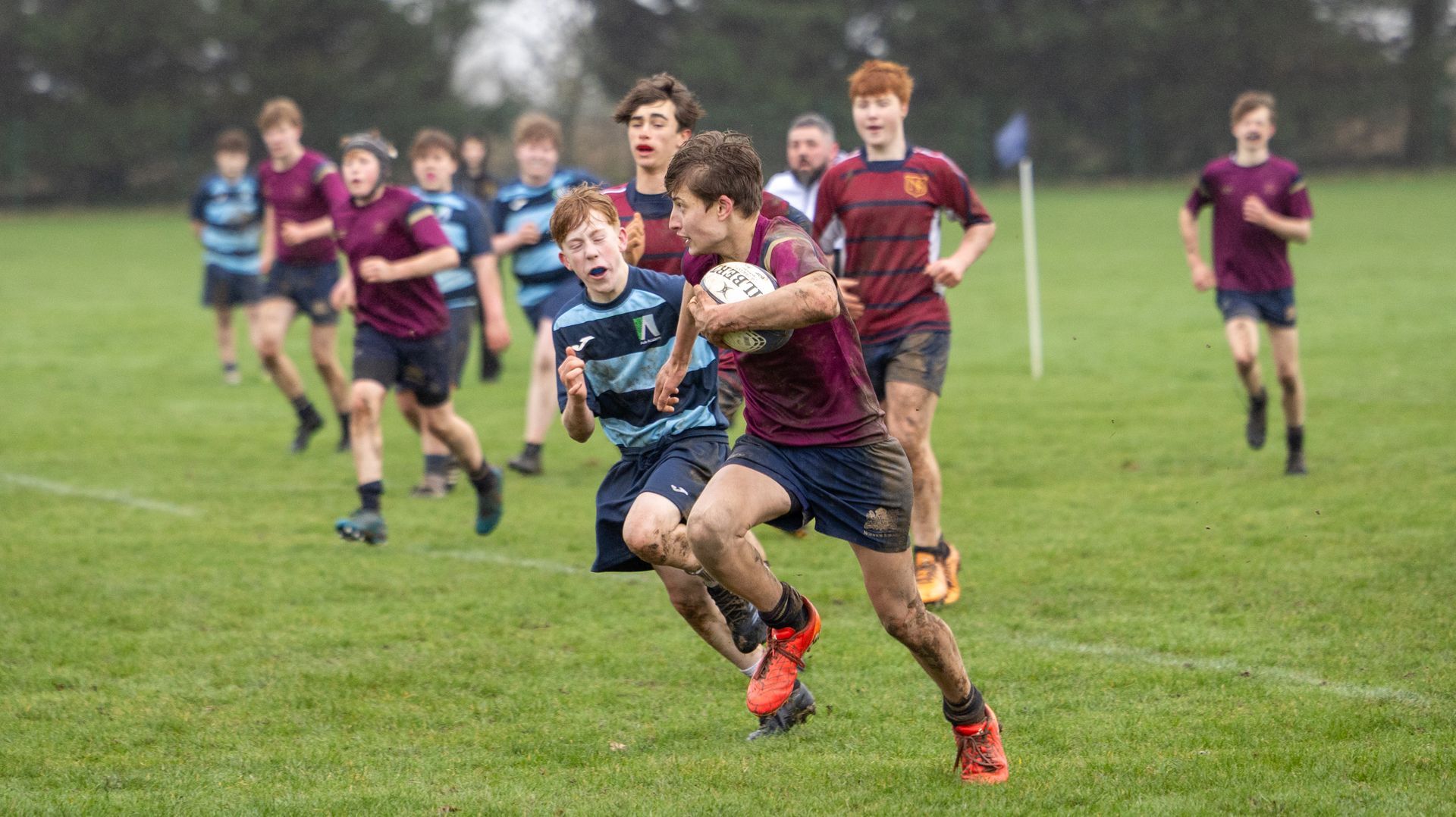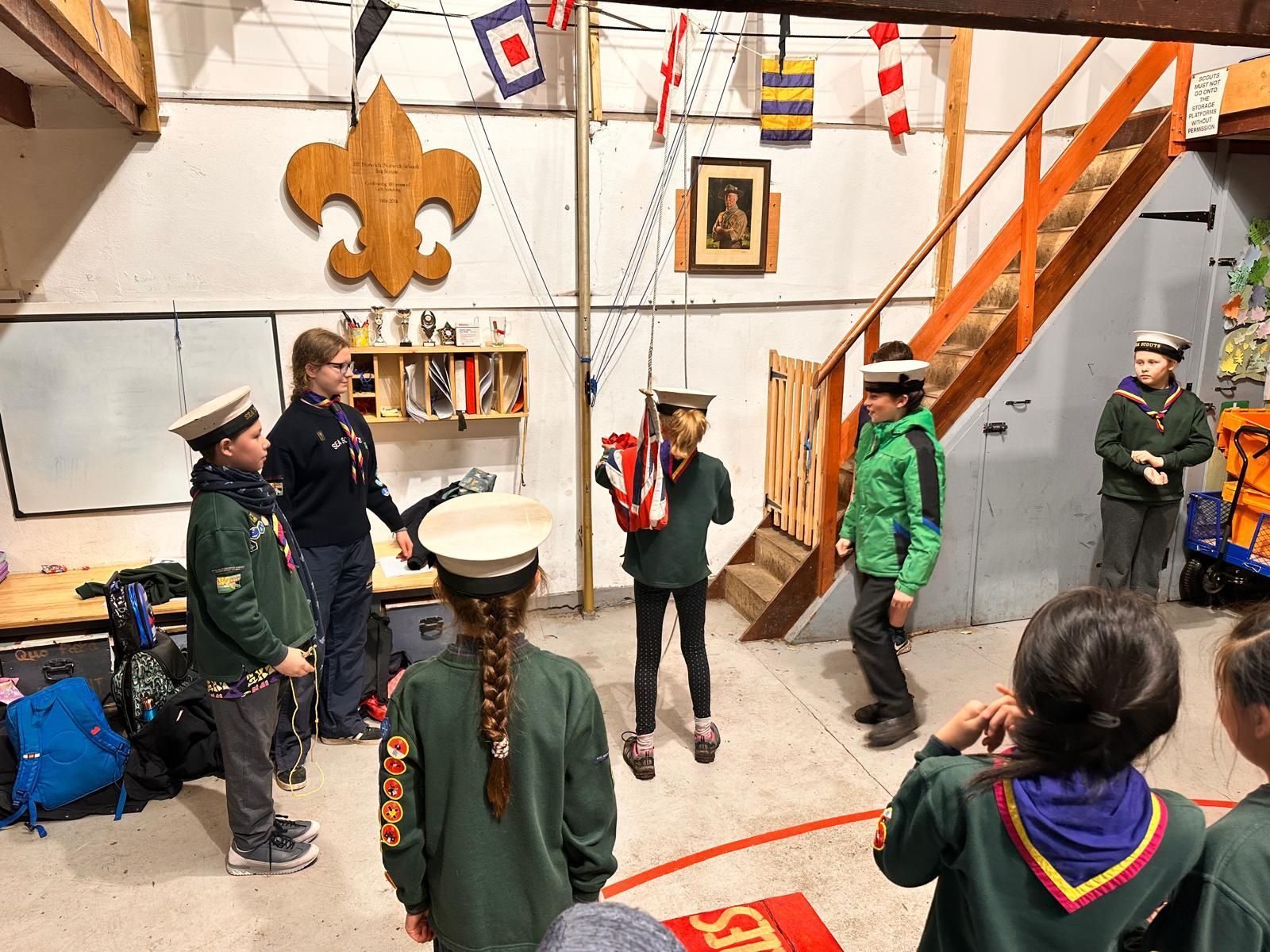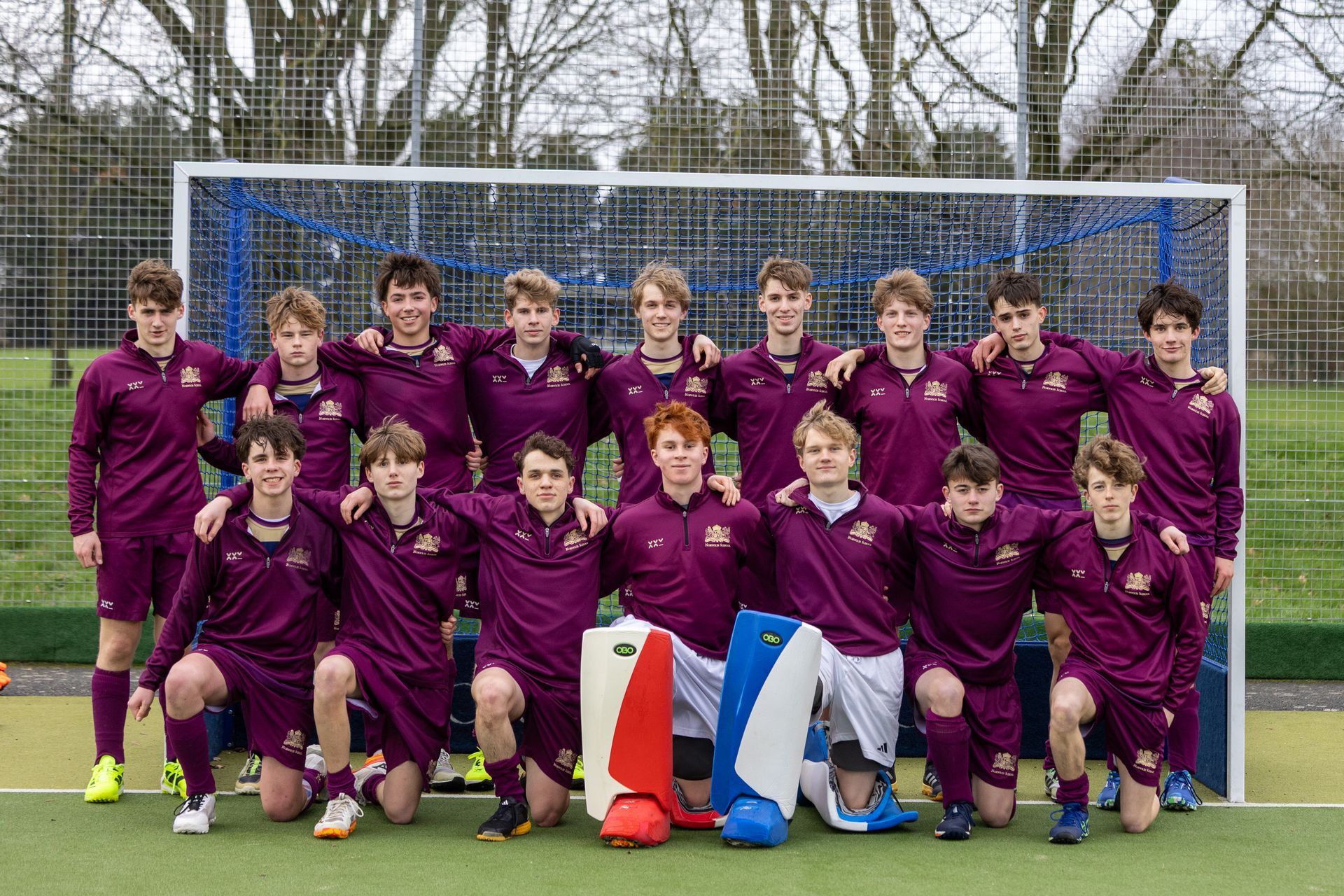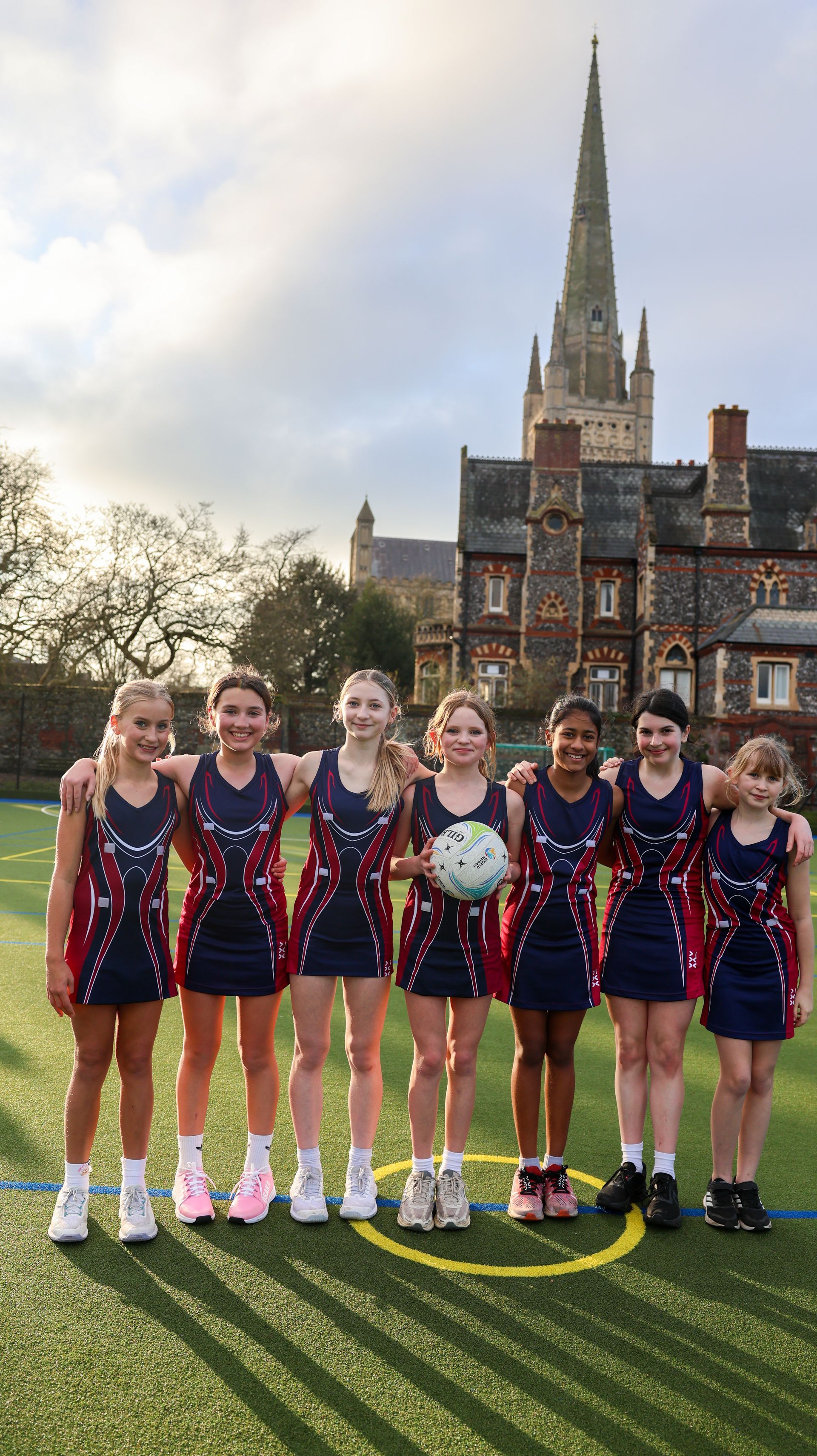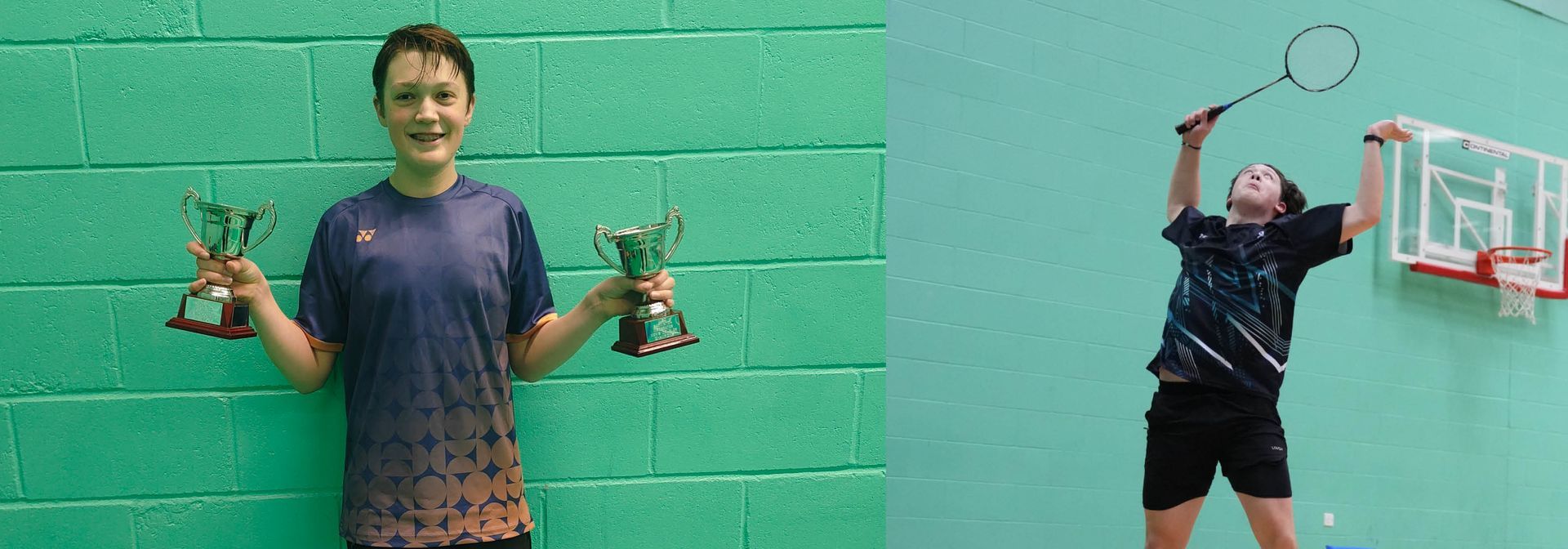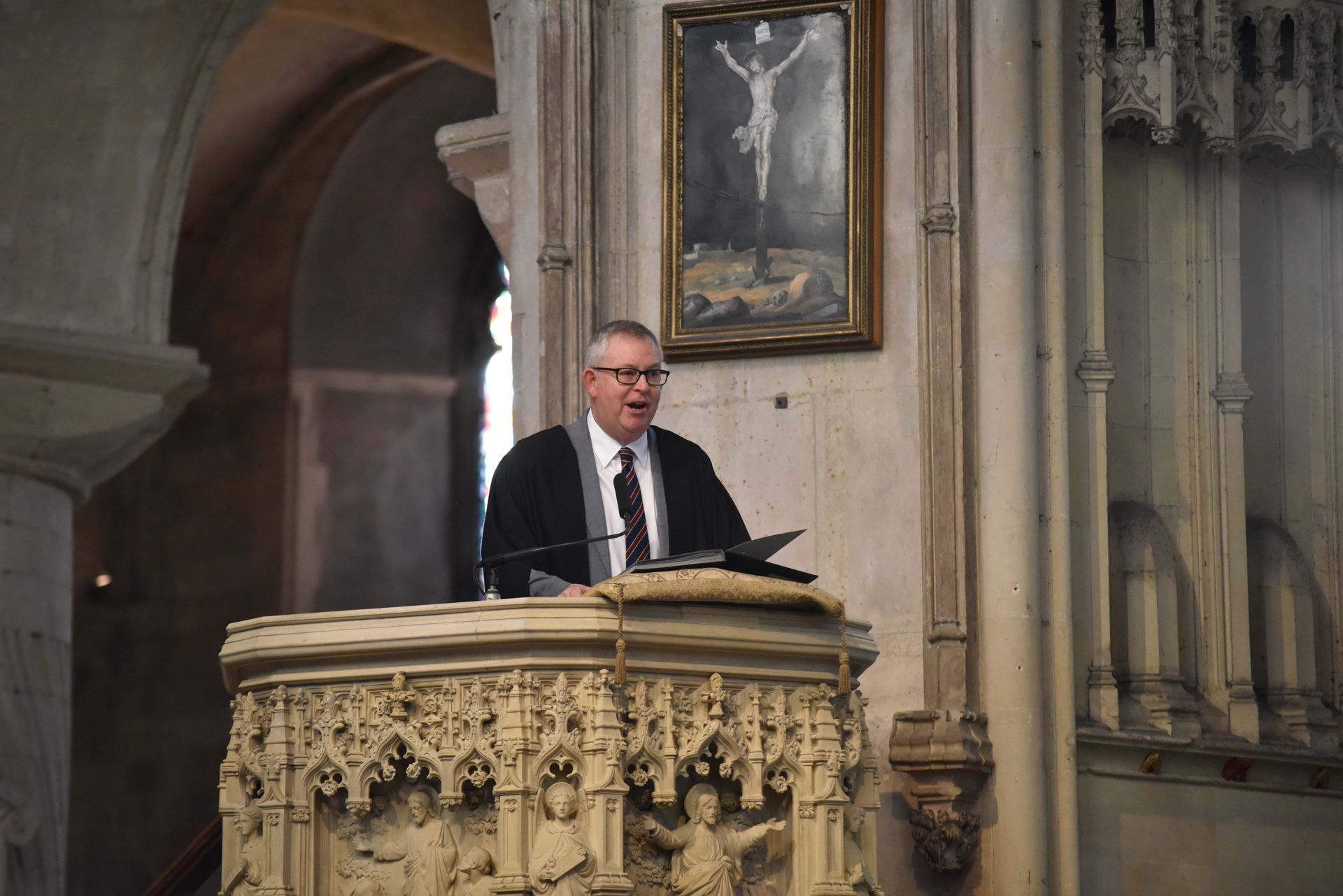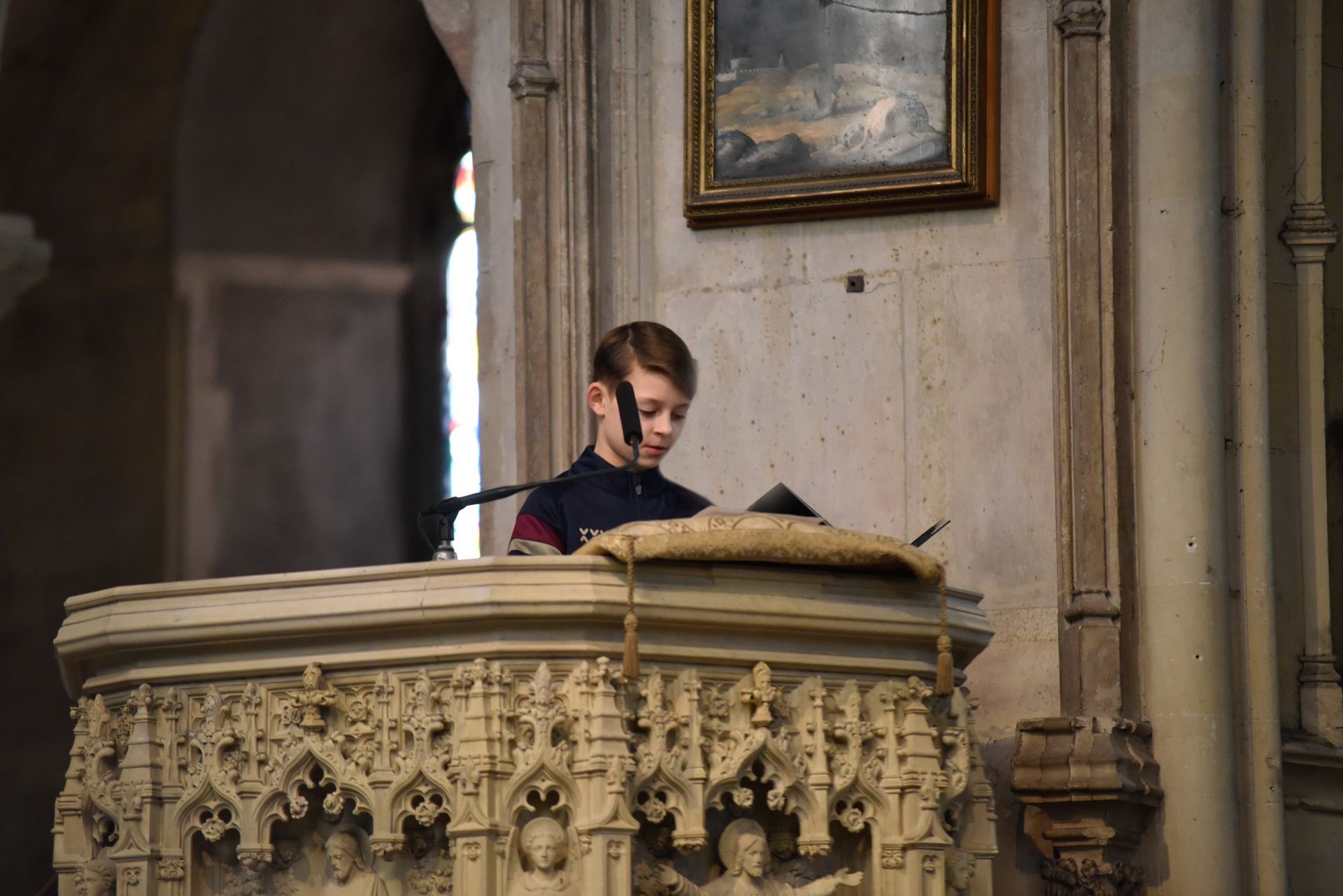What Will Your Enduring Legacy Be?
February 28, 2025
Jonathan Pearson, the School’s Development Director and Norwich School alumnus, gives us his take on passing educational values to the next generation….
At home I have a grainy old photo of a group of Norwich School linguists taken at the playground gates in 1986. Once you have got over the initial shock of the quite hideous mullets and spiky bed-hair, you may recognise myself, Jonathan Pearson, amongst the sixth formers. Look harder and on the end of the front row is a dark-haired, heavily bearded young teacher, proud of his youthful charges. That young man is none other than our then French A-Level teacher, the legendary Mr Bedford-Payne.
Fast forward 32 years to 2018 and in the same New Buildings classrooms where Mr Bedford-Payne taught me, he is still teaching Norwich School classes. Sitting in one of the rows is a certain Edward Pearson, my middle son. Things have come full circle. I am delighted to have been able to pass on a Norwich School education to Edward and to my other two sons. There are quite a number of you sitting here today whose mother or father is a former pupil, and I suspect they may also feel the same. You may or may not decide to send your own children to Norwich School one day or indeed to other great schools across the country. However, the focus of today’s assembly is more generally about successfully passing on the baton of education to the next generation, and sharing with others the important values learned whilst at school. I firmly believe in the positivity of this approach. My role at school is Development Director but also being a parent here and an Old Norvicensian accounts for why I have such pride in this school in particular. The focus of my work here is to foster a strong external community comprising former pupils, past and current parents, charities, businesses and well-wishers, all of whom help us be the best school we can. We very much encourage this community to pass on the baton of education to the next generation.
You will already have had some experience of how beneficial these external interactions can be. We get great speakers from all walks of life during the school year, but I always take particular interest when we get Old Norvicensians speakers at assemblies, at Prize Giving, at public lectures on site or in classes. They are always worth listening to. Of course such ONs will have the natural advantage of having completed their education, so can offer valuable insights about careers and sharing their life experiences. I cannot recommend highly enough Mrs James' current series of careers breakfasts. Recent ON presenters have included astrologists, financiers, medics, authors and the like. Absolute gold dust.
As they achieve material success, providing financial help is another way ONs pass a meaningful legacy back to Norwich School. For example, it won't have escaped the notice of attendees at Prize Giving that its programme is stuffed with prizes endowed by ONs inspired to support academic, sporting and co-curricular achievements. I am gratified that funds raised through the generosity of alumni have provided substantial funds for current building work at the Lower School, as well as for refurbishment costs to adapt so beautifully our new 15 Upper King Street facility.
The biggest contribution ONs have recently given, however, is through generous bursary funding, and that includes to many pupils sitting in front of me right now. Such support ensures your talent and potential is given a chance to shine, an opportunity which otherwise might have been denied you.
Why do they want to give back? What's in it for them, you might ask? The answer is invariably simple: they love this school and appreciate the critical part it has played in their lives. They want to see it thrive, to pay back the educational foundation upon which they have built their successful lives. You are the future and only a good education can give you that best start in life. They understand that well and feel compelled to help. How marvellous is that?
But what can you pass on? I hope when you are an ON you will be minded to help the school in some of the ways already outlined, but I urge you not to wait till you leave school. Pass it on now! You know the values the school lives by: love, compassion and inclusion. If you have younger siblings, pass on these values in your everyday lives. If you are an older pupil, or a prefect, or a team captain or lead a society or club, share such good practice with younger pupils. Pass on that love of learning, a lifelong curiosity for cultural and intellectual challenges, pass on fair play and respect in sport and in your daily behaviours, give freely of your time, enthusiasm for life etc etc. I am sure tomorrow’s world will be a better place for it.
I appreciate how fortunate I was to enjoy my early years as a pupil at Norwich School like you. We seemed to have studied lots of poetry in my day. It seemed natural to continue that focus at University and this love of the poetic form has stayed with me throughout my life. I wanted to introduce to you a poem with the Latin title Vitaï Lampada, translated as The Torch of Life. Before your heart sinks at the thought of Latin poetry before 9am, please bear with me. It’s in English, it's short and trust me it's a brilliant poem.
In a moment you will hear it read to you by L4 pupil Rosie Brew, but here are just a few words of introduction. It was written by Sir Henry Newbolt in 1892 and became seriously popular during WW1. Its essential timeless message speaks of fair play and the importance of passing such values on to future generations, which has been the theme of today's assembly.
There are just three verses. Stanza one opens on a cricket pitch in The Close, in Clifton College, Bristol - not Norwich, but it easily could be. A tense cricket game is reaching its climax. A calm captain urges the poet to play fairly to win the game. Verse two shatters this idyll as we are transported to the desperate theatre of war. The battle is bloody, the soldiers' protective formation is shattered, and the Gatling machine gun is jammed. All looks doomed, till the poet harks back to the serene fair play inspiration of the cricket square in order to rally the troops. And the moving final verse sees the poet in old age reminding us that, as health fails and we draw our last breath, there is nothing more critical than to have passed on to the next generation the values by which we have proudly lived our own lives.
So here is Rosie reading Vitaï Lampada by Sir Henry Newbolt. I hope you enjoy it.
There's a breathless hush in the Close to-night --
Ten to make and the match to win --
A bumping pitch and a blinding light,
An hour to play and the last man in.
And it's not for the sake of a ribboned coat,
Or the selfish hope of a season's fame,
But his Captain's hand on his shoulder smote --
'Play up! play up! and play the game!'
The sand of the desert is sodden red, --
Red with the wreck of a square that broke; --
The Gatling's jammed and the Colonel dead,
And the regiment blind with dust and smoke.
The river of death has brimmed his banks,
And England's far, and Honour a name,
But the voice of a schoolboy rallies the ranks:
'Play up! play up! and play the game!'
This is the word that year by year,
While in her place the School is set,
Every one of her sons must hear,
And none that hears it dare forget.
This they all with a joyful mind
Bear through life like a torch in flame,
And falling fling to the host behind --
'Play up! play up! and play the game!'
Thank you, Rosie, for reading so well.
So let me leave you again with that last powerful line to reflect on….
This they all with a joyful mind Bear through life like a torch in flame, And falling fling to the host behind -- 'Play up! play up! and play the game!' I invite you to ask yourself what will you proudly pass on from your education here to the next cohort of boys and girls sitting in these same seats in a generation’s time? What will your enduring legacy be?
